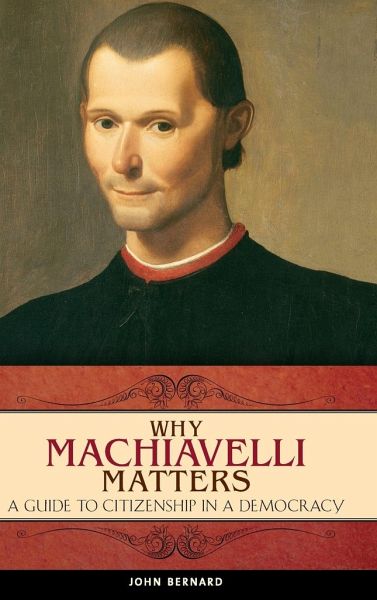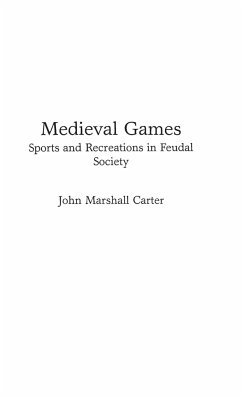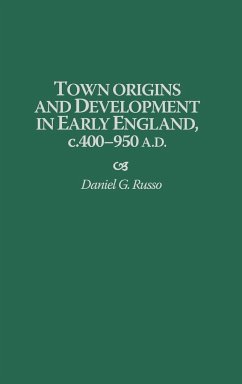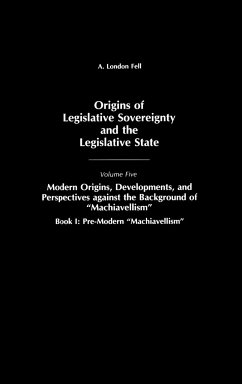
Why Machiavelli Matters
A Guide to Citizenship in a Democracy

PAYBACK Punkte
35 °P sammeln!
Machiavelli (1469-1527) is the seminal figure in early modern intellectual history for those living, or wishing to live, in a functional democracy. What Machiavelli is primarily about, and what makes him indispensable to those of us living in and struggling to preserve democracy in America, is the sum of individual and collective qualities required of a citizen, or what he termed virtu: a host of traits ranging from manliness to boldness, ingenuity, excellence, self-esteem, and even stoic resignation. In a narrative spanning Machiavelli's life and work as one of the world's most fascinating ph...
Machiavelli (1469-1527) is the seminal figure in early modern intellectual history for those living, or wishing to live, in a functional democracy. What Machiavelli is primarily about, and what makes him indispensable to those of us living in and struggling to preserve democracy in America, is the sum of individual and collective qualities required of a citizen, or what he termed virtu: a host of traits ranging from manliness to boldness, ingenuity, excellence, self-esteem, and even stoic resignation. In a narrative spanning Machiavelli's life and work as one of the world's most fascinating philosophers, Bernard illuminates for the modern reader just how relevant his insights are to our own evolving debate on the appropriate relations between religion and politics, church and state. Besides offering a detailed sketch of Machiavelli as a chancellor in the Italian Soderini Republic (1498-1512), this book examines the man's political philosophy, particularly his complex view of republics and principalities, in The Prince, the Discourses, and the Florentine Histories. It also establishes the importance of Machiavelli's writing as it evolved during his exile, especially in the reflexive passages of his plays Mandragola and Clizia. The book concludes with the potential uses of Machiavellism in 21st-century mass democracies, as well as presenting ways in which his legacy lives on in our own activities as citizens in a democracy.













